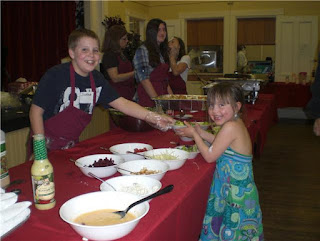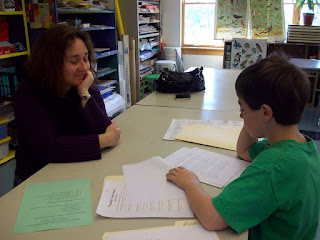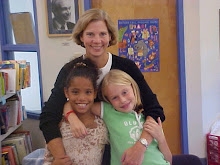



There is a push-pull in our society between the standardized testing, standards-based culture and the belief that American children need creativity, communication, and entrepreneurial skills for real future success. In independent education circles the current conversation is about resisting the pull for test prep based learning and recognizing that excellence and rigor are found in rethinking a traditional curriculum.
At Parker, we never did buy into the idea that preparing for testing prepares students for life.
We now find ourselves at the forefront of what is being suggested by the National Association for Independent Schools (NAIS) and thoughtful education experts, that schools develop a project-based, relevant curriculum to prepare students for the 21st Century and a competitive, complex interconnected world.
Emily Jones, Head of Putney School, writes in the current NAIS magazine:
Schools that have freed themselves from the constraints of standardized testing have found that they have several critical advantages: - They can teach creativity in all disciplines
- They can lengthen time horizons for assignments, using project based learning that is genuinely authentic
- They can teach decision -making and create a sense of agency and citizenship by having students approach real-world problems in real time
She goes on to say:
One thing that is clear from a study of these schools is that their students are doing serious intellectual work. There is nothing fluffy or "alternative" about these classes; in fact, they drive directly towards the goals articulated by the schools' mission statements and urged by educational leaders.We will continue to bring our mission statement to the classroom in all the creative and rigorous ways we can through our rich and responsive program!
Photos: Independent reading, self-portraits, Pi Day, writing a letter "To Mom" in Pre K 4.




 The 2-3's brought their water testing equipment to the Parker creek today. During their Stream to River clean water project they have visited the Hudson three times to collect data. Now they will compare their data on turbidity, pH, flow, chlorophyll, plant and animal life and other indicators, to our own stream. One more trip to the Hudson is planned for May. Of course our creek is available any day for testing.
The 2-3's brought their water testing equipment to the Parker creek today. During their Stream to River clean water project they have visited the Hudson three times to collect data. Now they will compare their data on turbidity, pH, flow, chlorophyll, plant and animal life and other indicators, to our own stream. One more trip to the Hudson is planned for May. Of course our creek is available any day for testing.





























